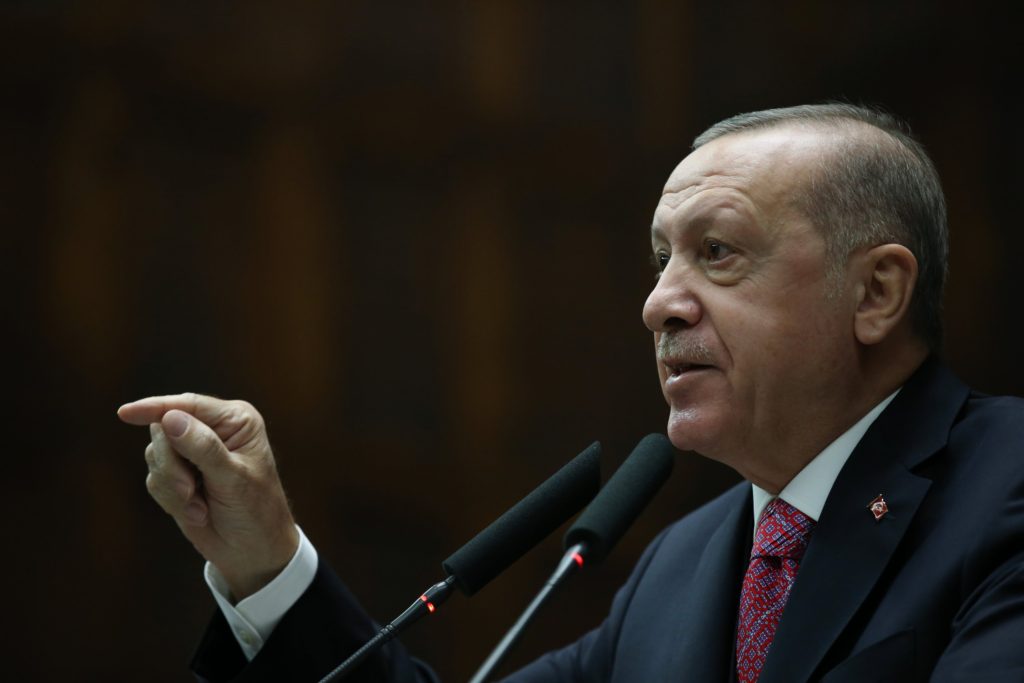US sanctions Turkey over purchase of Russian missile system
The sanctions were mandated under a 2017 law requiring them against any entity that engages in “significant transactions” with Russian defense or intelligence sectors.

By IAR Desk
The Trump administration imposed sanctions Monday on NATO ally Turkey’s main military weapons procurement agency as punishment for its purchase of a Russian-made missile defense system, the Washington Post reported.
The sanctions were mandated under a 2017 law requiring them against any entity that engages in “significant transactions” with Russian defense or intelligence sectors.
The announcement came after Congress last week overwhelmingly passed the annual defense funding bill, which includes a provision ordering that the sanctions be imposed within 30 days. President Trump has threatened to veto the bill.
Lawmakers of both parties had criticized the administration for delaying the sanctions following Turkey’s $2.5 billion purchase of the S-400 system in 2019, inaction that some attributed to Trump’s disinclination to offend Turkish President Recep Tayyip Erdogan, the Washington Post said.
Senior State Department officials who briefed reporters denied that the administration’s hand was forced by passage of the defense measure. “Any decision to impose sanctions . . . requires a thorough, deliberative process” and “That’s particularly the case when we’re talking about a NATO ally, one that is deeply integrated into NATO supply chains,” Washington Post quoted Matthew Palmer, deputy assistant secretary of the Bureau of European and Eurasian Affairs as saying.
Turkey has condemned the decision. Turkey’s Foreign Ministry called the measure “completely senseless” and “unfair.” Turkey, it said, “will take the necessary steps against this decision, which will negatively affect our relationship,” and pledged to “retaliate in a manner and timing it deems appropriate.”
It called on the United States to reconsider and to “address this issue through dialogue and diplomacy.”
The sanctions, although lighter than what the law allows, include a ban on U.S. export licenses and authorizations to Turkey’s Presidency of Defense Industries and asset freezes and visa restrictions against the organization’s president and three other senior officials.
However, the action itself seems to be significant. Christopher Ford, assistant secretary of state for international security and nonproliferation was reported as saying “I would in no way underestimate the importance of cutting off the main military procurement entity of a military ally from items coming from the U.S. defense industrial base….. I think this is a very significant, significant step.”
Both Palmer and Ford emphasized that, in addition to what Ford said was the desire to “send a strong signal” to Turkey and make its defense organization “clearly feel the consequences of its choice to be involved in this transaction,” the goal was also to punish Moscow and warn other countries not to deal with Russia.
“The United States made clear to Turkey at the highest levels and on numerous occasions that its purchase of the S-400 system would endanger the security of U.S. military technology and personnel and provide substantial funds to Russia’s defense sector,” Secretary of State Mike Pompeo said in a statement announcing the sanctions Monday.
Ties between Ankara and Washington have been strained over the last few years. While Turkey was looking forward to a reset in ties with the new incoming US administration, the damage maybe sufficient and will probably take time to be undone.
Similar sanctions were applied to China when it purchased the same Russian system along with fighter aircraft in 2017 and 2018. A number of other countries, including India and Saudi Arabia, have also progressed toward purchases. It is not clear what, if any, action maybe initiated against India which has asserted it’s decision to move ahead with the deal with Russia.